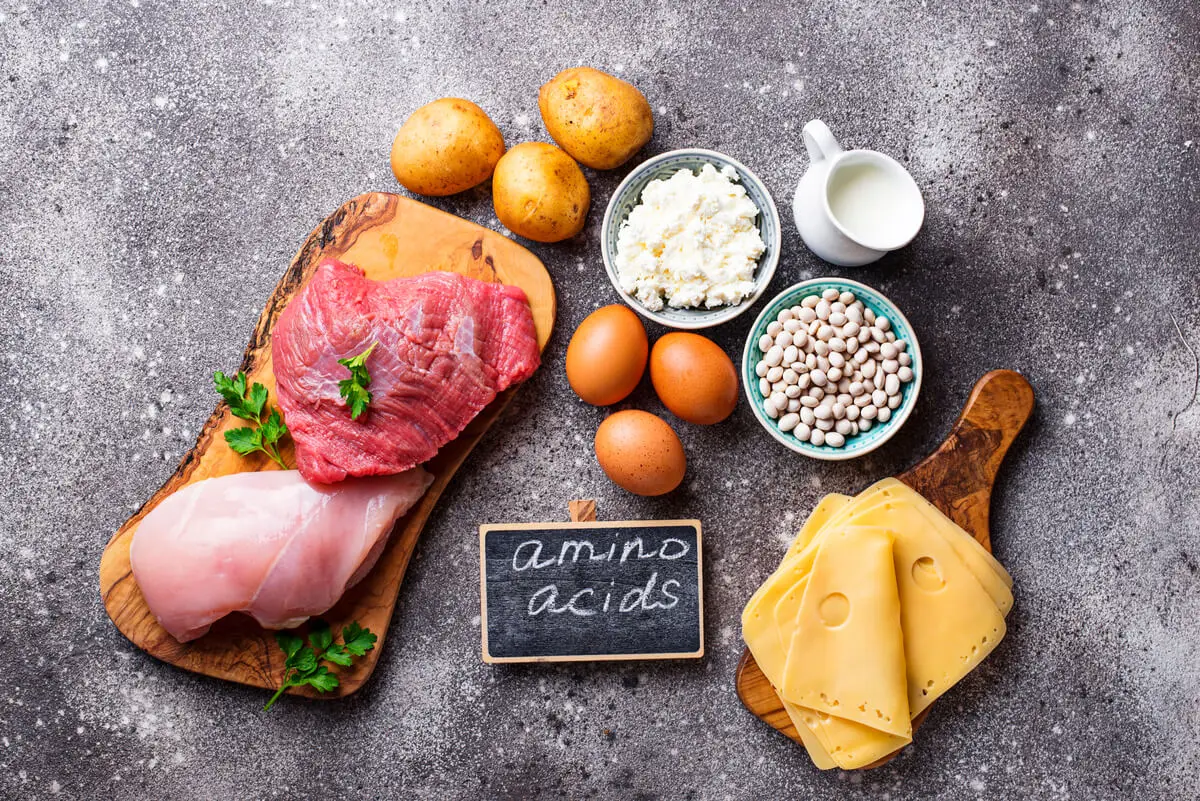Phenylketonuria: What It Is, Symptoms and Treatment


Reviewed and approved by the nurse Leidy Mora Molina
Phenylketonuria is a disorder in the metabolism of essential amino acids, specifically phenylalanine. This makes it unable to be processed by the body, and its levels rise.
Currently, newborn babies are screened to rule out this problem or, if they test positive, to initiate early treatment. Treatment involves a low-protein diet and some special formulas (supplements).
In this way, it’s possible to prevent damage to the brain that could result in intellectual disability. Phenylketonuria is also associated with other problems related to physical, emotional, and social development. Read on and we’ll tell you more.
What is phenylketonuria?

Amino acids are fundamental chemical substances in proteins. Thanks to them, the body can make the compounds the body needs for growth and development.
Moreover, it can be said that there are three types of amino acids:
- Essential: These aren’t produced by the body, but are supplied by food.
- Non-essential: The body can produce them by itself.
- Conditional: Those that become necessary in certain circumstances, for example, in the case of illness.
In particular, phenylalanine is part of the group of essential amino acids. It’s found in many foods, especially those rich in protein, such as meats, eggs and dairy products
However, when the enzyme required to break it down is missing, the body doesn’t process it and the levels of this amino acid rise. They can be further increased when a person consumes protein or aspartame.
This is known as phenylketonuria (PKU), a disorder of amino acid metabolism. It affects the processing of phenylalanine, causing it to accumulate too much in the body.
It can then affect brain function, leading to limitations in several areas related to cognitive processing and communication, as well as other health problems, which we will learn more about later.
Learn more here: Branched-Chain Amino Acids: What Is Their Function?
Causes and risk factors
Phenylketonuria is caused by a change in the phenylalanine hydroxylase gene, which helps create the enzyme for the body to break down the amino acid.
It’s an inherited disorder; although for a child to inherit this condition, both parents must have the altered gene, without necessarily suffering from the disease.
On the contrary, if only one of the parents is a carrier of the altered gene, it will be transmitted to their descendants, who, in turn, will be carriers, but will not develop the disease.
There are also some risk factors for inheriting or developing PKU. For example, in the United States, more cases of this disease have been observed among descendants of Europeans than in people of African descent.
Research indicates that in Ireland the incidence is 1 person per 4,500, while in the United States it is 1 per 11,000. In Latin America, it’s 1 per 21,000 and in Cuba, it’s even lower at 1 per 50,000.
Symptoms of phenylketonuria
Newborns with phenylketonuria don’t usually have any symptoms. However, when there’s no treatment, some signs may begin to appear between the third and sixth month of birth. For example, the baby may show little interest in what is happening around them.
By the age of one, a delay in development can already be observed. And, over time, other signs are noticed, such as lighter skin, hair, and eyes than other members of the family group.
However, if the intake of the above-mentioned foods isn’t limited, and phenylalanine levels continue to rise, then severe intellectual and developmental disabilities can occur.
Other symptoms of PKU include:
- A moldy odor on the skin, urine, or breath
- Skin conditions
- Seizures
- Tremors in the legs or arms
- Microcephaly
- Hyperactivity
- Delayed growth
- Excessive behaviors
- Poor social skills
How is it diagnosed?
In some countries, all newborns are screened for phenylketonuria. It’s usually part of the routine group of tests, before the baby and mother leave the hospital. However, if the birth has occurred elsewhere, it’s recommended to do the screening within the first 48 to 72 hours of life.
This can come in the form of a urine or blood test. For the latter, a small prick is made, with a needle or lancet, and three samples are taken. These are mixed with a bacterium that needs phenylalanine, as well as with a substance that blocks the reaction of this amino acid.
If the result is positive, it’s possible to do additional tests to confirm the diagnosis. For example, a genetic test could be suggested to analyze changes in the causative genes. This would be performed on both the child and the parents.
Additionally, a pregnant woman may request some prenatal DNA diagnostic testing, especially if she already knows she is a carrier or if she has another child with PKU. For this test, cell samples are taken, through the abdomen or vagina.
Find out more: What Are Prenatal Vitamins and Why Are They Important?
Phenylketonuria treatment

If the diagnosis is confirmed, the baby can quickly begin treatment. It should be clarified that there’s no cure for PKU. However, an early approach will help to prevent further problems in terms of intellectual disabilities, as well as to protect their health and contribute to their development.
Diet
Throughout their lives, PKU patients, whether children or adults, should follow a special diet, limiting protein and, in turn, phenylalanine.
Foods to avoid include:
- Dairy
- Beef or pork
- Chicken and other poultry
- Fish
- Nuts and dried fruits
- Soybeans, beans, peas, and other legumes
- Beer
- All those containing aspartame
While it’s possible to create a more flexible diet as the child grows older, the recommendation is to maintain this way of eating even in later life, for better mental and physical health.
In other words, the diet shouldn’t be limited only to childhood. Similarly, it’s very important in pregnant women who carry the altered gene to ensure a healthier development of the baby.
Now, since the amount of phenylalanine that can be safely consumed varies in each patient, one should work hand in hand with a health expert to adapt the diet to each particular case. This also involves periodic testing to determine how well it’s working.
Supplements
According to the results of several studies, a low-phenylalanine diet is effective in reducing levels of this amino acid, which results in improvements in cognitive functioning.
However, it has also been observed that people on this type of diet need a protein supplement to ensure the minimum daily requirement. In the case of infants, they should take a special formula, which can be mixed with breast milk or regular formula, albeit in small amounts.
Medications
Some medications allow people with phenylketonuria to have a more varied or less limited diet in terms of the amount of phenylalanine. One of these is sapropterin dihydrochloride, a drug approved by the FDA. Sapropterin (BH4) is an essential cofactor of three amino acid hydroxylases.
So, it’s believed that this substance can help the body break down phenylalanine and reduce its blood level. However, since the lack of BH4 is only one of the reasons why the body doesn’t process this amino acid, the diet cannot be bypassed.
Other treatments
Currently, alternatives for the nutritional treatment of PKU are being investigated, as this diet could lead to other health problems (e.g. osteoporosis). In this regard, options such as tetrahydrobiopterin, neutral amino acids, and glucomacropeptides, among others, are mentioned.
Possible complications
The severity of phenylketonuria varies in each case, depending on the type:
- Classic: The enzyme needed to break down phenylalanine is missing or doesn’t work.
- Mild or moderate: The enzyme still functions or is present, although in a greatly reduced form.
However, when such a disease isn’t treated, it can cause different problems, such as severe and irreversible brain damage, intellectual disability, neurological problems (seizures), behavioral, emotional, and social disorders
For their part, pregnant women with this condition are at risk of developing another form of the disease: maternal phenylketonuria. If she doesn’t follow a special diet, phenylalanine levels rise, which can harm the fetus.
Thus, at birth, the baby may have low birth weight, hydrocephalus, heart problems, delayed development, intellectual disability, and behavioral disorders. However, it’s possible to prevent this, if the diet is adjusted before and during pregnancy.
When to go to the doctor
It’s always necessary to perform screening tests on the child at birth. If one of the parents has had a child with PKU, this becomes even more imperative.
On the other hand, it’s necessary to be attentive to some signs in the child, particularly in the way they interact with their environment or with the people around them. If you notice that the child shows little interest in what is going on around them, it’s advisable to go for a consultation.
All cited sources were thoroughly reviewed by our team to ensure their quality, reliability, currency, and validity. The bibliography of this article was considered reliable and of academic or scientific accuracy.
- Pérez Kindelán D, Fernández Masó D, et al. Fenilcetonuria. Aspectos clínico– epidemiológicos. Rev Inf Cient. 2008; 58(2). Disponible en: http://revinfcientifica.sld.cu/index.php/ric/article/view/1349.
- Borrajo J. Epidemiologic view of phenylketonuria (PKU) in Latinamerica. Acta Pediatr Mex. 2012; 33(6): 279-287.
- Pontón R. Errores congénitos en el metabolismo: fenilcetonuria. Invenio. 2003; 6(10): 147-156.
- Villegas T, Flores G. Posibles riesgos para la salud debido al consumo de aspartame. Enfoque UTE. 2014; 5(2): 1-13.
- Gutiérrez García E, Barrios García B, Arcas Ermeso G. El estado heterocigótico para mutaciones del gen fenilalanina hidroxilasa como factor de riesgo fetal. Rev. cuba. Pediatr. 2005; 77(1). https://pesquisa.bvsalud.org/portal/resource/pt/lil-418751
- Rubin de Celis V. Diagnóstico prenatal y consejo genético acerca de las enfermedades genéticas. Paideia XXI. 2010; 1(1): 195-209.
- Alderete M, Méndez R, Monzón M, Méndez A. Avances terapéuticos en fenilcetonuria. Revista de Posgrado de la VIa. 2006; 154: 21-23.
- MacLeod E, Ney D. Tratamiento nutricional de la fenilcetonuria. Ann Nestlé. 2010; 68: 60–71.
- US Food and drugs administration. Drug Approval Package. Kuvan (Sapropterin Dihydrochloride) Tablets. 2007. Disponible: https://www.accessdata.fda.gov/drugsatfda_docs/nda/2007/022181TOC.cfm
This text is provided for informational purposes only and does not replace consultation with a professional. If in doubt, consult your specialist.








